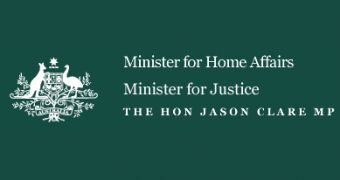Australia’s Minister of Home Affairs is determined to ensure that corruption will not affect the activities of law enforcement organizations. As a result, a number of new anti-corruption measures will be implemented and the number of agencies to be monitored by the country’s watchdog will be doubled.
The Minister for Home Affairs and Minister for Justice Jason Clare claims that most law enforcement officers are “good, honest and hardworking people.” However, since their work makes them the targets of criminals, they could pose a serious risk to their agencies if they become corrupted.
To prevent this from happening, officials announced the Law Enforcement Integrity Legislation Amendment 2012 Bill. The new law will include three main aspects: integrity testing, the enhancement of power of the Customs CEO, and the expansion of the corruption watchdog’s responsibilities.
With the introduction of the bill, employees of the Australian Crime Commission (ACC), the Australian Federal Police (AFP), and Australian Customs and Border Protection Service (Customs) will be tested if they manifest suspicious behavior.
For instance, officers might be approached by undercover agents posing as criminals who offer to pay them a bribe. Another clever method deployed by authorities is the planting of false information in certain databases in order to identify the person who leaks it.
Valuable items will be placed at simulated crime scenarios to see if anyone is in the habit of stealing.
As far as the responsibilities of the Australian Commission for Law Enforcement Integrity (ACLEI) are concerned, the organization will have to oversee three additional agencies: the Australian Transactions Reporting and Analysis Centre (AUSTRAC), CrimTrac, and the Department of Agriculture, Fisheries and Forestry.
From now on, Customs CEOs will have the power to fire employees for serious misconduct, authorize alcohol and drug testing, and even order staff members to report any inappropriate behavior.

 14 DAY TRIAL //
14 DAY TRIAL //